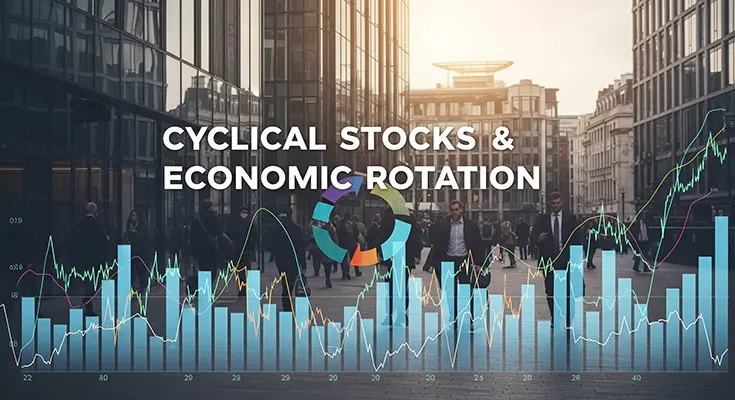
Cyclical Stocks and Economic Rotation: A Tactical View for Sector Rotation in the UK
In equity investing, timing is everything. Markets rise and fall, often in line with broader economic trends. And while some stocks seem to weather every storm, others shine only when the economic sun is out. These are cyclical stocks—companies whose performance waxes and wanes with the business cycle. For UK investors who aim to stay one step ahead of the market, understanding the mechanics of economic rotation and the strategic use of cyclical stocks can offer a powerful edge.
This article dives into how cyclical stocks behave, what economic rotation means in practice, and how UK investors can tactically rotate between sectors for better portfolio performance.
Understanding Cyclical Stocks
Cyclical stocks belong to industries that are highly sensitive to economic fluctuations. Think travel, construction, automotive, and luxury goods. When the economy is booming, consumers spend more, businesses invest, and revenues swell. But when growth slows, these same companies often experience …
Cyclical Stocks and Economic Rotation: A Tactical View for Sector Rotation in the UK Read More



